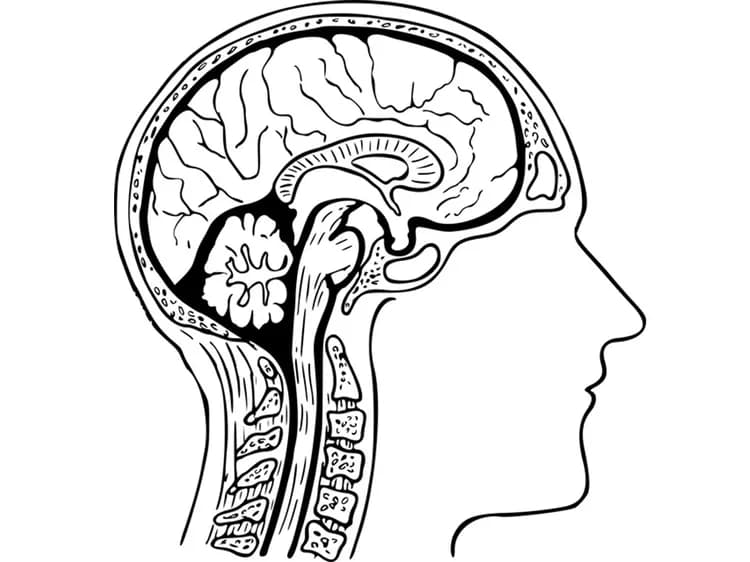
Brain's Power To Adapt Offers Short-Term Gains, Long-Term Strains
Like air-traffic controllers scrambling to reconnect flights when a major hub goes down, the brain has a remarkable ability to rewire itself after suffering an injury. However, maintaining these new connections between brain regions can strain the brain's resources, which can lead to serious problems later, including Alzheimer's Disease, according to researchers.
After a head injury, the brain can show enhanced connectivity by using alternative routes between two previously connected regions of the brain that need to communicate, as well as make stronger connections, said Frank G. Hillary, associate professor of psychology, Penn State. These new connections between damaged areas are often referred to as hyperconnections, he added.
"Hyperconnectivity has been called a compensatory reaction to brain injury and it's a little counterintuitive because it implies that the brain can increase its functional response when you take away physical resources," said Hillary. "If the axon -- the physical connection -- between brain areas is removed, the brain can retain that connection functionally by using alternative routes. So what we're seeing is there are all sorts of ways in which the brain can adapt and one way is to heighten the response, but the question is what does that do for you in the short term and what are the potential secondary consequences in the long term."
Because neural networks are typically designed to communicate as efficiently as possible, disruptions may mean that new networks are less efficient and use more energy, said Hillary, who worked with Jordan H. Grafman, director, brain injury research at Shirley Ryan Abilitylab and professor of physical medicine and rehabilitation, neurology and psychiatry and behavioral sciences at the Northwestern University in Chicago.
"It's costly metabolically and it's costly with respect to how quickly you think," said Hillary. "One of the primary cognitive deficits in all neurological disorders -- multiple sclerosis, traumatic brain injury, schizophrenia -- is impairments in how quickly you can think, called processing speed. In neurological disorders, processing speed diminishes and it can be related to a decrease in brain efficiency."
Over time, these chronic inefficiencies may cascade into serious brain disorders, according to the researchers, who report their findings in the current issue of Trends in Cognitive Science.
"If we know which patients would be susceptible to pathological hyperconnectivity following a traumatic brain injury, we might be able to develop new interventions to alter the course of that process," said Grafman. Prior research has suggested a connection between brain injury and Alzheimer's Disease, according to the researchers.
"We know that brain injury is a risk factor for Alzheimer's Disease later in life and the long-term effect of hyperconnections may be a link to how it happens," said Hillary, who also is a faculty member at Penn State College of Medicine.
Just as inefficient motors tend to pollute more, inefficient neural connections may build up harmful deposits that can further impair the brain. Although other factors, such as genetics, are likely involved, the researchers noted that higher deposits of amyloid beta -- a marker of Alzheimer's Disease -- are often located at sites where there is the highest connectivity.
"Where there's a lot of activity going on, it increases metabolic byproducts and if you don't clear them, they collect," said Hillary. "Heavy activation, heavy connectivity can put pressure on network hubs and that's why those hubs are some of the first to go in Alzheimer's."
While more research is needed and possible treatment targets for Alzheimer's or other neurological conditions remain uncertain, Hillary said the findings underscore the need to take precautions against brain injury.
"What I always tell my students is be good to your brain," said Hillary. "You only get one brain and while it can adapt to some injuries over your life, there is probably a cost for those adjustments."
Materials provided by Penn State. Note: Content may be edited for style and length.
Disclaimer: DoveMed is not responsible for the accuracy of the adapted version of news releases posted to DoveMed by contributing universities and institutions.
Primary Resource:
Hillary, F. G., & Grafman, J. H. (2017). Injured Brains and Adaptive Networks: The Benefits and Costs of Hyperconnectivity. Trends in Cognitive Sciences. DOI: 10.1016/j.tics.2017.03.003
Related Articles
Test Your Knowledge
Asked by users
Related Centers
Related Specialties
Related Physicians
Related Procedures
Related Resources
Join DoveHubs
and connect with fellow professionals

0 Comments
Please log in to post a comment.